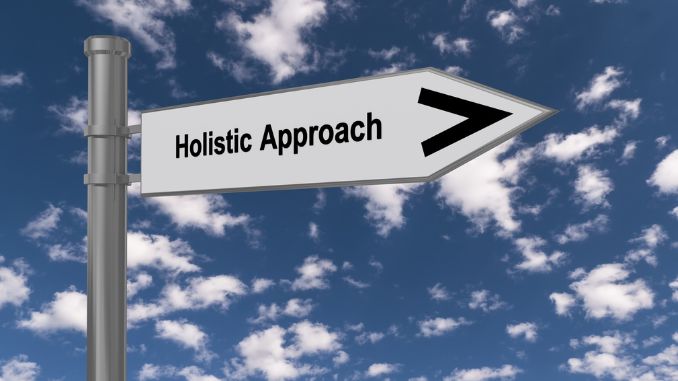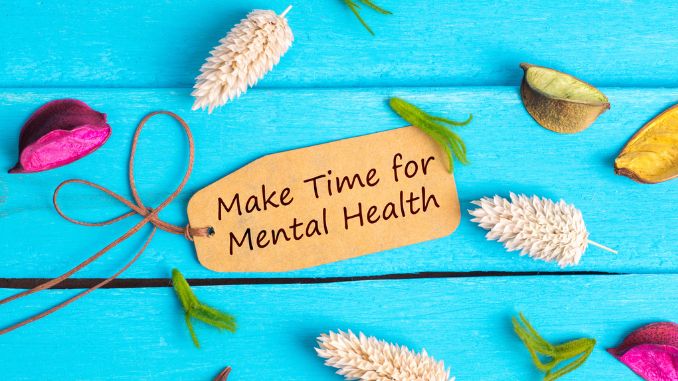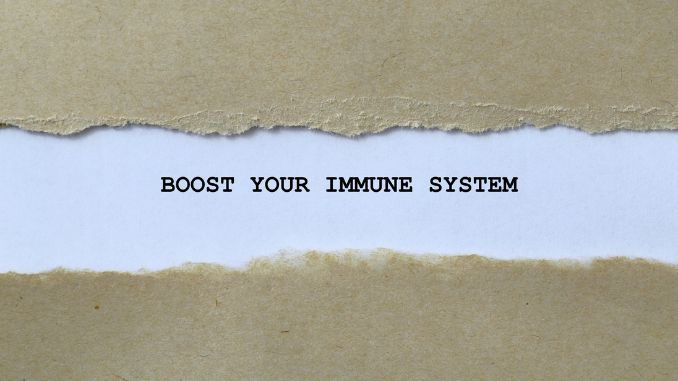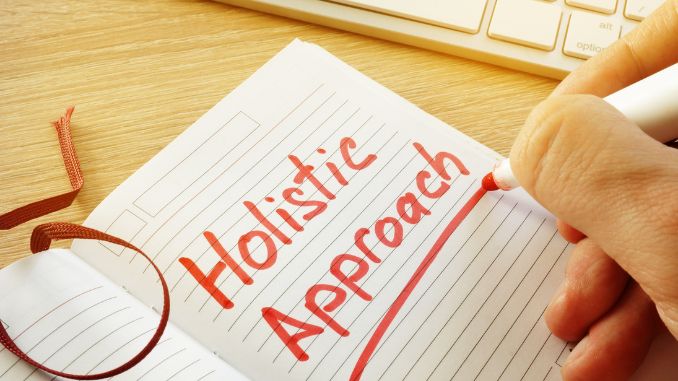Living in our fast-paced world, finding balance and well-being might seem challenging. But, if we adopt a holistic approach, we can discover the secrets to a satisfying and healthy life. This article explores the basic elements of this approach and how they contribute to our overall well-being.
From eating nutritious food to being mindful, we’ll look at how our physical, mental, and emotional health are all connected. See how combining these aspects can lead to a more synchronized and vibrant life. Join us on this journey as we examine how a holistic approach can bring balance, joy, and a deep sense of well-being.
What Constitutes A Holistic Approach?

Looking at things holistically means taking a complete and connected view that recognizes how different parts of our well-being are related. Instead of just dealing with the signs of a problem, it focuses on fixing the root causes of imbalance and disharmony. By considering our physical, mental, emotional, and spiritual health, the holistic approach aims to achieve overall well-being and vitality.
Exploring The Fundamental Importance Of Balance
Understanding the importance of balance for our overall well-being is really important. Being healthy and happy depends on keeping things in balance in different parts of our lives. If one thing is out of balance, it can affect other areas too. Like, if you’re super stressed all the time, it doesn’t just mess with your mind but can also cause health problems. And not eating well doesn’t just make your body feel bad—it can also affect how you feel emotionally and mentally.
Understanding how different aspects of our well-being are connected helps us prioritize balance. It means we can take proactive steps to keep our mental and physical health in harmony. For example, managing stress not only helps our minds but also benefits our bodies. Similarly, eating healthily isn’t just about the food—it positively affects both our mental and physical well-being.
Basically, staying healthy is like a puzzle where balance is the most important piece. When we grasp how everything works together, we can make smart choices and build a healthy and vibrant life.
The Impact Of The Holistic Approach On Mental Health

The all-around approach strengthens your mind by tackling different parts of your well-being. Stuff like mindfulness and handling stress help you build ways to deal with tough times, making you mentally strong for the long haul.
1. Better Control Of Emotions

When you mix in activities that connect your mind and body, the all-around approach improves how you handle your emotions. Meditation and mindful breathing make you more aware of your feelings, giving you the power to handle them better.
2. Healthy Lifestyle Choices

Living a holistic life means making smart choices that are good for your mental health. Eating good food, staying active, and keeping positive social connections all add up to a well-rounded way of caring for your mental well-being.
The Impact Of The Holistic Approach On Emotional Health
Taking care of our emotional health is a big part of staying well. It’s important to understand and share our emotions in a good way. If we learn to handle our emotions well and be kind to ourselves, it helps us bounce back from tough times and handle stress better. Doing things that make us happy, like hanging out with loved ones or doing things we love, is also good for our emotional health.
-
Improved Stress Management

Holistic techniques, including meditation and relaxation exercises, provide effective tools for managing stress. The holistic approach emphasizes the importance of addressing emotional stressors alongside physical and mental stress, fostering a more comprehensive and sustainable stress management strategy.
-
Cultivation Of Positive Emotional Habits
Adopting a holistic lifestyle often involves promoting positive habits that extend beyond physical health, influencing emotional well-being. Whether through mindful practices, positive affirmations, or nurturing social connections, the holistic approach contributes to the cultivation of habits that positively impact emotional health.
The Impact Of The Holistic Approach On Physical Health
Taking good care of our physical health is a big part of staying healthy. That means eating good food, exercising regularly, and getting enough rest. When we consume a balanced and healthy diet, our bodies get all the important nutrients they need to work well.
Regular exercise is also great because it makes our muscles stronger, keeps our hearts healthy, and makes us feel happy. And don’t forget about sleep—it’s super important for our bodies to rest and recover. So, eat well, move around, and make sure you get a good night’s sleep to keep your body in tip-top shape!
1. Boosting Your Immune System

Taking care of your overall well-being can help your immune system work better. Living with a healthy lifestyle can strengthen your body’s defenses against sickness.
2. Improved Cardiovascular Health
Doing activities that are good for your heart is part of a holistic approach. Regular exercises like aerobics or yoga can improve circulation, lower blood pressure, and make your cardiovascular system work better.
3. Optimized Digestive Health
Holistic approaches recommend mindful eating and a focus on good nutrition. By eating well and listening to your body, you can support your digestive health, which helps with absorbing nutrients and keeps your body in top shape.
Integrating Mind, Body, And Spirit For Holistic Healing

Promoting holistic health [¹] entails integrating the mind, body, and spirit. This approach recognizes that authentic healing involves all aspects of our being. Mindful practices like meditation and positive affirmations nurture mental well-being, fostering inner peace. Prioritizing physical health through nutritious food, exercise, and rest enhances overall vitality. Nurturing the spirit with nature, spiritual practices, and gratitude adds depth to our sense of purpose. In essence, this holistic medicine emphasizes comprehensive care for the whole person, addressing physical symptoms and mental well-being, guided by naturopathic doctors.
Mastering Techniques For Life Balance

Trying out different methods and tricks can really help you find balance and feel good.
Check these out:
-
Mindfulness Meditation

Giving mindfulness meditation a try is a great way to stay in the moment, reduce stress, and boost your overall well-being. Taking a few minutes to breathe deeply can bring a surprising boost to your mental and emotional well-being.
-
Yoga
Doing yoga involves performing different poses, breathing exercises, and meditation. It helps with flexibility, strength, and chilling out. Plus, it’s not just good for your body—it also helps clear your mind and keep your emotions in check, making it a complete package for feeling good.
-
Journaling

Keeping a journal allows for documenting thoughts, feelings, and experiences, offering insights, emotional processing, and progress tracking toward well-being goals. This reflective practice fosters self-awareness and personal growth as a therapeutic outlet.
-
Nature Immersion
Spending time in natural surroundings has demonstrated stress reduction, mood enhancement, and overall well-being improvement. Whether strolling in a park, hiking in the mountains, or simply enjoying the beach, immersing oneself in nature can profoundly impact mental, physical, and emotional health.
The Role Of Nutrition In The Holistic Approach
Your dietary choices influence your overall well-being. Consuming a rainbow of healthy foods fuels your body for peak performance. Fruits, veggies, whole grains, and lean proteins act as fuel, ensuring smooth bodily processes. Hydrate adequately and limit processed or sugary foods.
Attending to your body’s signals and adopting a mindful approach to eating fosters a strong connection with food, maintaining proper nutrition. This is particularly crucial for individuals experiencing chronic pain, cancer patients, and those seeking guidance from healthcare professionals.
The World Af Holistic Therapies And Alternative Medicine
In addition to lifestyle practices, holistic therapies, and alternative medicine can also play a significant role in achieving balance and well-being. These therapies often focus on restoring the body’s natural healing mechanisms and addressing the underlying causes of imbalance.
Here are some examples:
1. Acupuncture

A traditional Chinese therapeutic technique, acupuncture, involves inserting slender needles into specific body points. This stimulates energy flow, fostering balance and easing diverse physical pain and mental ailments.
2. Chiropractic Care

This healthcare discipline focuses on the musculoskeletal system, particularly the spine. Chiropractors employ hands-on adjustments and manipulations to address issues like misalignments, pain, and nervous system dysfunction.
3. Herbal Medicine

Herbal medicine uses parts of plants like roots, leaves, and flowers to help with healing. It taps into the good stuff in plants to boost health.
4. Reiki

Reiki, from Japan, is all about a healer sending good life energy to someone else. It chills you out, lowers stress, and evens things out. The idea is that if your energy flow is off, it can mess with your health.
5. Traditional Chinese Medicine

Traditional Chinese Medicine (TCM) is a holistic healing system rooted in ancient Chinese philosophy. It employs practices like acupuncture, herbal medicine, and therapeutic exercises such as Qigong and Tai Chi. TCM views the body as an interconnected system where the balance of vital energy (Qi) is crucial for health. It aims to restore harmony by addressing imbalances in the body’s energy flow, promoting overall well-being, and preventing illness.
6. Tai Chi

Tai Chi is a holistic practice, uniting mind and body through slow, flowing movements and mindful breathing. Rooted in ancient Chinese philosophy, it promotes physical health, mental clarity, and emotional well-being. This moving meditation fosters balance, flexibility, and strength, harmonizing the flow of vital energy throughout the body. Accessible to all, Tai Chi offers a gentle yet profound path to holistic wellness[²] and self-discovery.
7. Thinking Outside The Medicine Box

Trying different ways to heal, like herbs and energy work, might give you new ideas and options for caring for your whole self.
Conclusion: Embracing The Holistic Approach For A Healthier And Happier Life
Embracing a holistic approach is like adopting a unique perspective on overall well-being. It involves recognizing the interconnectedness of our bodies, minds, and emotions, and taking actions to promote happiness and balance on all fronts.
To embody holism, we engage in habits such as consuming nourishing food, engaging in regular exercise, maintaining a positive mindset, and participating in activities that bring joy and satisfaction. Exploring diverse therapeutic approaches aligned with personal preferences and needs is also crucial for enhancing our well-being.
By integrating our thoughts, bodies, and emotions, the holistic approach becomes a potent force. It’s not a one-time endeavor; rather, it’s an ongoing journey that requires self-care. Starting this holistic journey today can lead to transformative changes, positively impacting physical symptoms, mental health, and overall quality of life[³].
This approach views the unique needs of individuals, involving a naturopathic doctor and primary care physician, particularly for issues like chronic pain or mental illness. It transcends the conventional medical model and acknowledges environmental factors, providing support for cancer patients and others experiencing physical and mental challenges.
Feeling stressed is an emotional, and sometimes physical response to the life’s daily demands. This can include career pressure, parenting struggles, financial responsibilities, illness, injuries, relationships and more.
Check out our The 14-Day Stress Reduction Quick Start Program just for you!


Rick Kaselj MS, is a leading kinesiologist and injury specialist as well as co-creator of the best-selling Unlock Your Hip Flexors program. Rick creates exercise programs that help people heal injuries and eliminate pain, so they can go back to living a full, active, healthy life.



